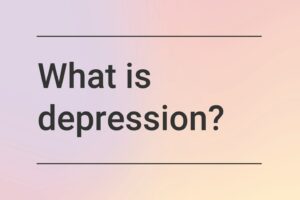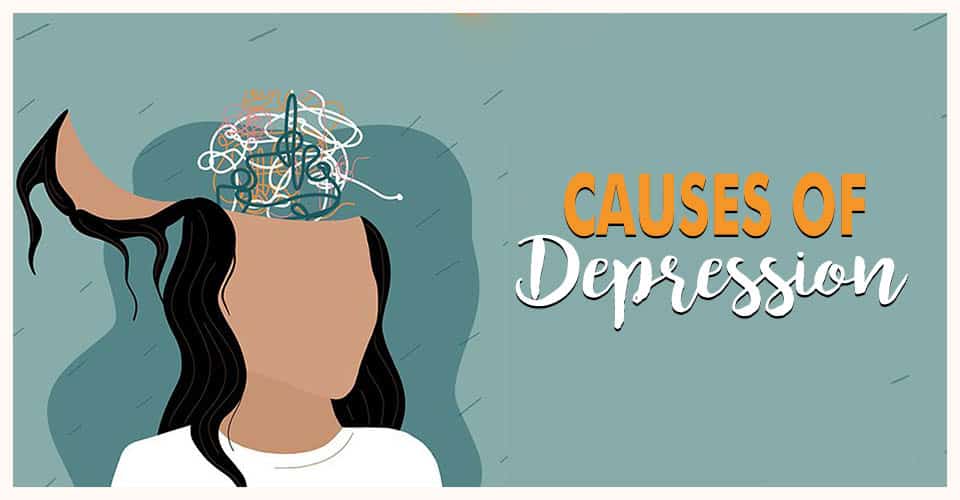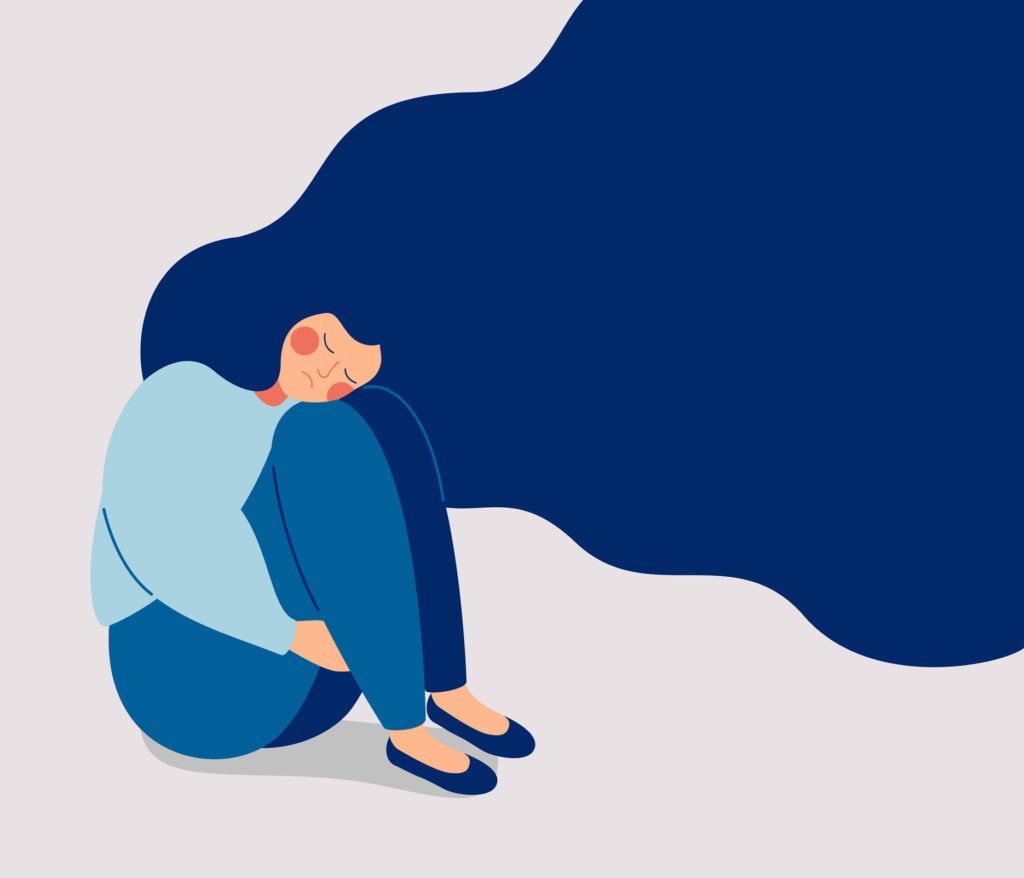Depression is a serious mental illness that can have a devastating impact on your life. It is estimated that around 350 million people around the world suffer from depression, and it is one of the leading causes of disability worldwide. Depression can manifest in many different ways, and it can be difficult to diagnose without professional help. In this blog post, we will discuss the 11 most common causes of depression. We will also provide tips on how to spot the symptoms and get help for yourself or someone you know who may be suffering from depression.
Contents
What Is Depression?
 Depression is more than just feeling down or having a bad day. It’s a serious mental health condition that can have a profound impact on your life. Depression is characterized by persistent feelings of sadness, hopelessness, and worthlessness. These symptoms can interfere with your ability to work, sleep, eat, and enjoy activities you once found pleasurable. Depression can also lead to physical problems such as fatigue, headaches, and digestive issues.
Depression is more than just feeling down or having a bad day. It’s a serious mental health condition that can have a profound impact on your life. Depression is characterized by persistent feelings of sadness, hopelessness, and worthlessness. These symptoms can interfere with your ability to work, sleep, eat, and enjoy activities you once found pleasurable. Depression can also lead to physical problems such as fatigue, headaches, and digestive issues.
There are many different types of depression, and it can be caused by a variety of factors. While it’s not always possible to prevent depression, there are things you can do to reduce your risk. If you think you might be depressed, it’s important to see a doctor or mental health professional for an evaluation.
What Causes Depression?

Depression is caused by a combination of genetic, biological, psychological, and environmental factors.
Genetics
One of the most important risk factors for depression is genetics. If you have a family member who suffers from depression, you’re more likely to experience it yourself. Researchers believe that certain genes may make you more vulnerable to the disease. Sometimes, depression can run in families even when there’s no history of it.
Biochemistry
Changes in biochemistry can also lead to depression. The brain depends on certain chemicals, called neurotransmitters, to function properly. These include serotonin, norepinephrine, and dopamine. When there’s an imbalance of these chemicals, it can lead to feelings of sadness and despair. This imbalance may be caused by a medical condition or medication side effects. Biofeedback can help to correct this imbalance and relieve depression symptoms. Brain-imaging techniques, such as PET scans and MRI, have also shown that the brains of people with depression look different than those without the disorder.
Psychological Factors
Certain psychological factors can also contribute to depression. These include:
Low self-esteem
Self-esteem is how you feel about yourself. People with low self-esteem often feel worthless and undeserving of happiness. They may believe that they’re not good enough, smart enough, or attractive enough. This can lead to depression.
Perfectionism
People who are perfectionists often set unrealistic standards for themselves. They may have a hard time completing tasks because they’re never satisfied with their work. This can lead to feelings of inadequacy and failure, which can trigger depression.
Loss
The death of a loved one, the end of a relationship, or any other type of loss can be difficult to deal with. It’s normal to feel sad, overwhelmed, and even angry after a loss. But, for some people, these feelings don’t go away. This is called complicated grief, and it can lead to depression.
Trauma
If you’ve experienced a traumatic event, such as abuse, rape, or combat, you may be at risk of developing depression. These events can cause long-lasting feelings of sadness, guilt, anxiety, and powerlessness.
Grief
Grief is a normal response to loss. But, sometimes, the pain of grief can be overwhelming. This is called complicated grief. It can lead to depression if it’s not dealt with healthily.
Environmental Factors
Certain environmental factors can also contribute to depression. These include:
Stressful life events
Divorce, job loss, financial problems, and other stressful life events can trigger depression. Sometimes there maybe be no specific event that leads to depression. But, a build-up of small stressful events can also lead to the disorder. These events may not seem like they would cause depression, but they can add up over time.
Isolation
People who feel isolated and alone are at a higher risk of developing depression. This is especially true if you don’t have a strong support system of family and friends. Isolation can also be caused by social anxiety and shyness.
Lack of sunlight
Exposure to sunlight helps your body produce vitamin D, which is important for your physical and mental health. People who don’t get enough sunlight are at a higher risk of developing depression. This is especially true in the winter when there’s less daylight. Seasonal affective disorder (SAD) is a type of depression that occurs during the winter. It’s thought to be caused by a lack of sunlight.
Sleep problems
People with sleep problems, such as insomnia, are at a higher risk of developing depression. This is because sleep plays an important role in your physical and mental health. Lack of sleep can cause fatigue, irritability, and difficulty concentrating. It can also worsen other medical conditions.
Substance abuse
People who abuse alcohol or drugs are at a higher risk of developing depression. This is because substance abuse can lead to changes in the brain that trigger depressive symptoms. Additionally, people who are depressed may turn to alcohol or drugs as a way to self-medicate their symptoms. But, this only leads to more problems down the road.
Loneliness
Another environmental factor that can contribute to depression is loneliness. Loneliness is different from isolation in that it’s not necessarily caused by a lack of social contact. Instead, loneliness is a feeling of emptiness or disconnection from others. Lonely people often feel like they don’t fit in or like they’re not part of a community. This can lead to depression.
How Common Are Causes of Depression?
 The causes of depression are many, and they can be hard to spot. But knowing the signs and symptoms of depression is the first step to getting help.
The causes of depression are many, and they can be hard to spot. But knowing the signs and symptoms of depression is the first step to getting help.
About half of all people with depression also have anxiety. And for some, depression can be so severe that it leads to suicide.
There are many different types of depression, and it can be caused by a combination of things, including:
-Biological factors like genes or brain chemistry
-Psychological factors like trauma or personality
-Environmental factors like stress or poverty
Half of all people with depression will also have anxiety. And for some, depression can be so severe that it leads to suicide.
If you think you might be depressed, it’s important to see a doctor or mental health professional. They can help you figure out if your symptoms are caused by depression or another problem.
Getting treatment is the best way to feel better and get your life back on track. But even if you don’t have insurance or money for treatment, there are still ways to get help.
Impacts of Depression
The impacts of depression can be significant. It can lead to problems with work, school, and personal relationships. It can also cause physical health problems and make it difficult to cope with the stress of everyday life.
Depression can make you feel hopeless, worthless, and helpless. You may lose interest in activities that used to give you pleasure. Also, You may also have sleep problems, such as insomnia or sleeping too much. You may have difficulty concentrating or making decisions. And you may experience physical symptoms, such as fatigue, pain, or digestive issues.
Sometimes, people with depression may turn to alcohol or other drugs to try to self-medicate. This can make the symptoms of depression worse and lead to addiction.
These impacts of depression can have a profound effect on your quality of life. If you are experiencing any of these symptoms, it is important to get help.
Treatment for Depression

There are many effective treatments for depression. The most common treatment is an antidepressant medication. Antidepressants work by correcting the chemical imbalance in the brain that causes depression.
Other effective treatments include psychotherapy, cognitive-behavioral therapy, and light therapy. These therapies can help you identify and change negative thought patterns and behaviors that contribute to depression. They can also help you develop healthy coping skills to deal with stress and manage difficult life situations.
Another important part of treatment is self-care. This includes getting regular exercise, eating a healthy diet, and getting enough sleep. Self-care can help you manage the symptoms of depression and improve your overall health.
If you are struggling with depression, there is hope. With treatment, you can feel better and live a full and productive life.
Conclusion
Depression is a serious mental illness that should not be taken lightly. If you think you may be suffering from depression, it is
There may be many causes of depression, but it is important to remember that help is available. If you or someone you know is struggling, don’t hesitate to reach out for support. Sometimes, all it takes is one phone call to make a difference.
Hope this article was of help to you! If you are suffering from depression, you may seek help from Therapy Mantra. We have a team of highly trained and experienced therapists who can provide you with the tools and skills necessary for overcoming depression. Contact us today to schedule an online therapy or download our free Android or iOS app for more information.


